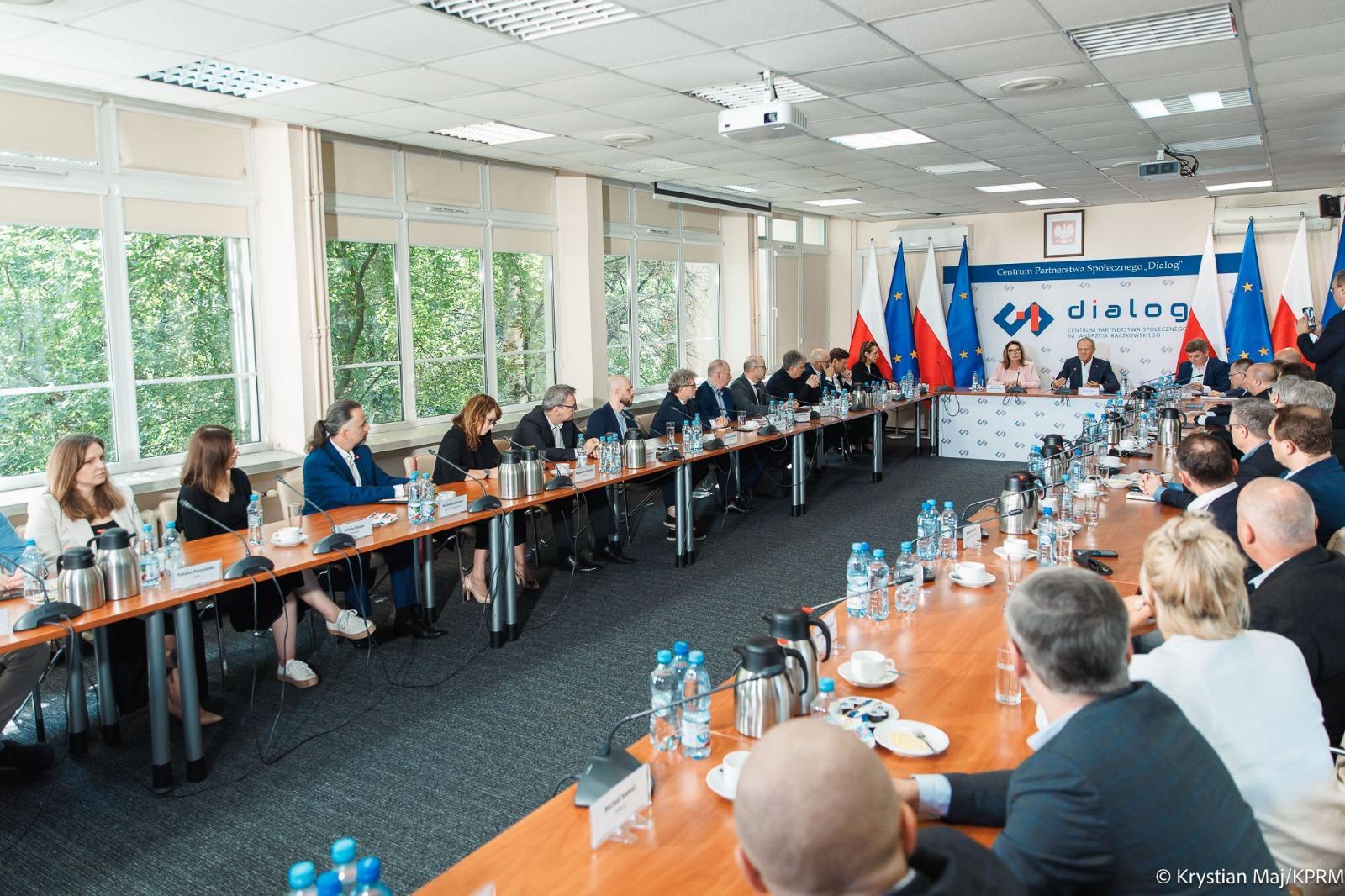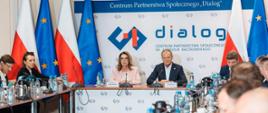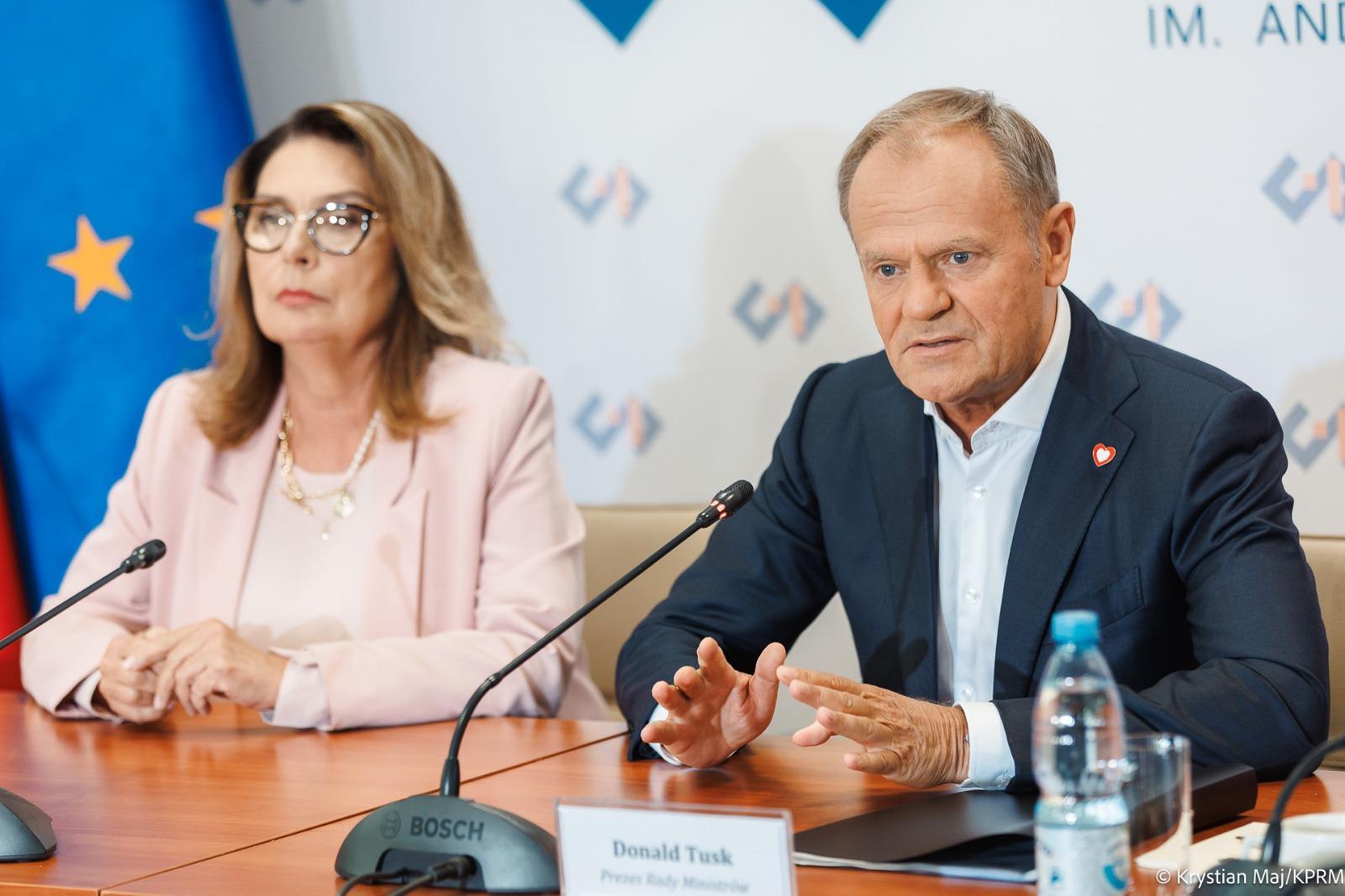Media freedom and independence is more than a mere catchphrase
10.07.2024
The “Dialog” Centre for Social Partnership hosted a roundtable with representatives of the media on changes to copyright law at the initiative of Prime Minister Donald Tusk. Speaker of the Senate Małgorzata Kidawa-Błońska took part in the meeting, which was devoted to the amendment of the law implementing the EU DSM (Digital Single Market) Directive. Mr. Tusk expressed his belief that the media and the government need to find a common ground regarding this matter. This process will be aided by a special task force, which brings together representatives of the Ministry of Culture and National Heritage and publishers.

Freedom of the media is the foundation of a free Poland
Ensuring independence and freedom of the media is in the interests of the media themselves, as well as journalists, creators and public authorities. This concerns not only political independence, but also a certain level of autonomy from the so-called Big Tech companies.
“As we were building a free Poland, every time our freedom or independence was threatened or restricted for any reason, we felt like we reached a stumbling block. That is why I am committed to ensuring that freedom and independence of the media is more than just a catchphrase, but something we see on a daily basis. . . .I also understand the need to ensure that this independence and autonomy also concerns your relations with the biggest actors in the market, including the so-called Big Tech companies,”
said Prime Minister Donald Tusk at the start of the meeting.
He noted that he is aware of the disparities in terms of funding, as well as organisation and logistics between conventional media and the global companies that currently dominate the digital market.
“I am aware that this is not just a Polish problem. . . .This disparity requires new and innovative regulations, laws and enforcement,”
the Prime Minister explained.
Roundtable with the media on copyright law
The Prime Minister stated that he believed in the shared interest of the government and the media concerning the changes to copyright law.
“As far as possible, we are going to look for the best practices and examples around the world. We want to be able to manage the market in such a manner that puts you on an equal footing with the biggest players, as you cannot compete when starting from a losing position,”
Donald Tusk explained.
As he pointed out, as of today, finding a suitable model for the implementation of the EU DSM Directive among other EU Member States that is also easy to follow is a difficult task.
“Perhaps we will have to work out a good solution ourselves. . . .It is possible that we will have to come up with the pioneering optimal and effective formula,”
said the Prime Minister.
He noted that time was not essential and would not be the deciding factor.
“If we want to enact a law that is satisfactory to us all in the first constitutional step, we still have the time in the Senate. . . .However, if we come to the conclusion that we need a couple more weeks to work out some measures that you need, I can assure you that we are willing to do it in such a way that can result in a satisfactory solution that works for all of us,”
the Prime Minister pointed out.
The draft amendment is currently reviewed by the Senate Committee for Culture.
Government representatives and publishers join forces
Everybody agrees with the key premise - that the media, artists and creators need to be protected and supported by the state. Publishers need to be able to go toe to toe with the largest actors, and copyright needs to be respected.
“We are working on a law that ensures the safety of the Polish media in the clash with Big Tech. Tomorrow (Thursday), the Committee for Culture will meet for the first time. We are hopeful that we are able to work out a solution during the subsequent meetings. . . .We need to be done in July,”
stated Małgorzata Kidawa-Błońska , Speaker of the Senate.
Deputy Minister of Culture and National Heritage Andrzej Wyrobiec explained that the relevant copyright law provisions had to be developed by a special task force comprising government representatives and publishers. He hoped that this would lead to a quick consensus.
The roundtable meeting at the “Dialog” Centre for Social Partnerships was attended by editors-in-chief and heads of organisations representing publishers, who signed the open letter to the Prime Minister on changes to copyright law this March.



